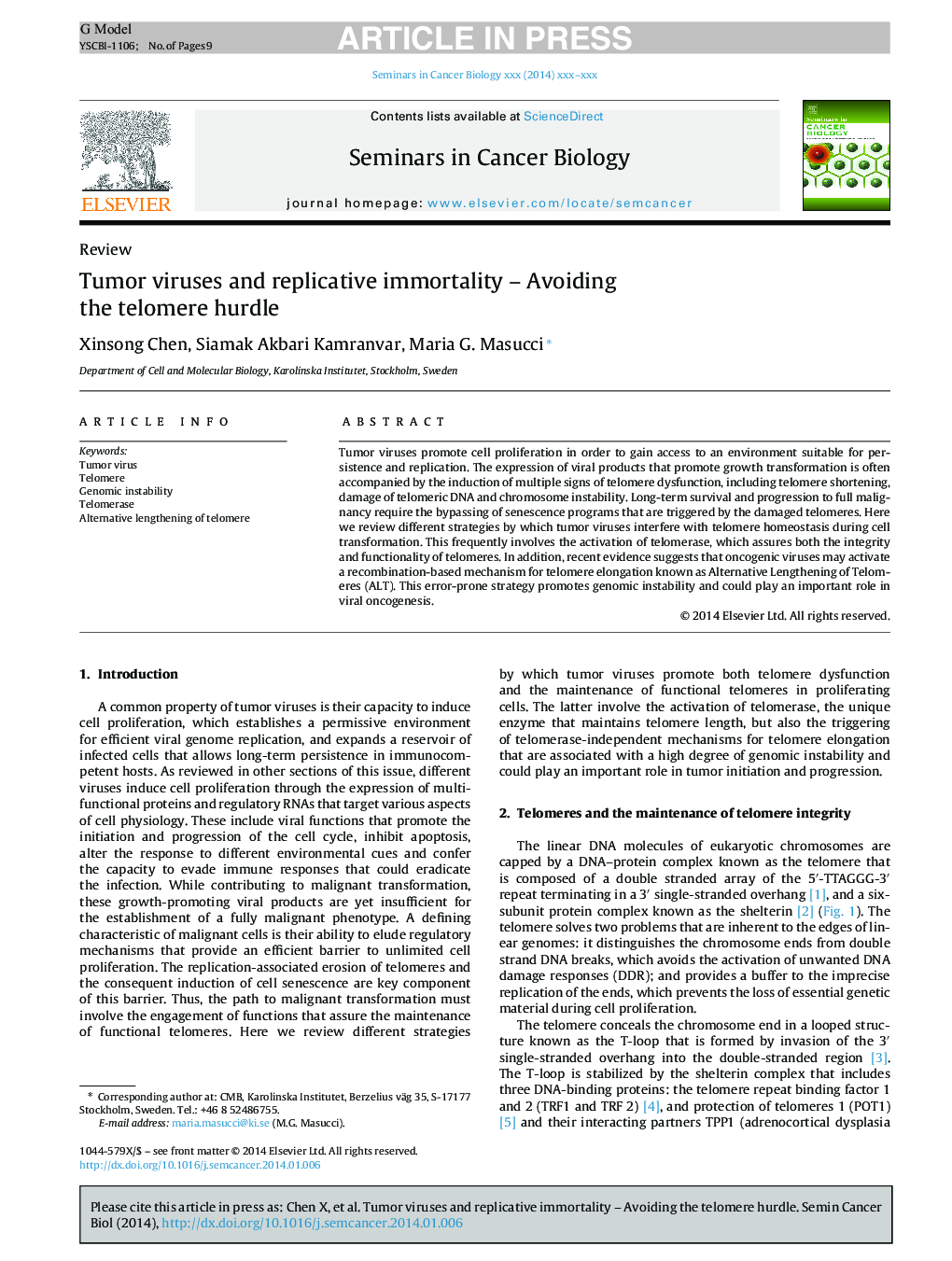| Article ID | Journal | Published Year | Pages | File Type |
|---|---|---|---|---|
| 8362367 | Seminars in Cancer Biology | 2014 | 9 Pages |
Abstract
Tumor viruses promote cell proliferation in order to gain access to an environment suitable for persistence and replication. The expression of viral products that promote growth transformation is often accompanied by the induction of multiple signs of telomere dysfunction, including telomere shortening, damage of telomeric DNA and chromosome instability. Long-term survival and progression to full malignancy require the bypassing of senescence programs that are triggered by the damaged telomeres. Here we review different strategies by which tumor viruses interfere with telomere homeostasis during cell transformation. This frequently involves the activation of telomerase, which assures both the integrity and functionality of telomeres. In addition, recent evidence suggests that oncogenic viruses may activate a recombination-based mechanism for telomere elongation known as Alternative Lengthening of Telomeres (ALT). This error-prone strategy promotes genomic instability and could play an important role in viral oncogenesis.
Related Topics
Life Sciences
Biochemistry, Genetics and Molecular Biology
Biochemistry
Authors
Xinsong Chen, Siamak Akbari Kamranvar, Maria G. Masucci,
